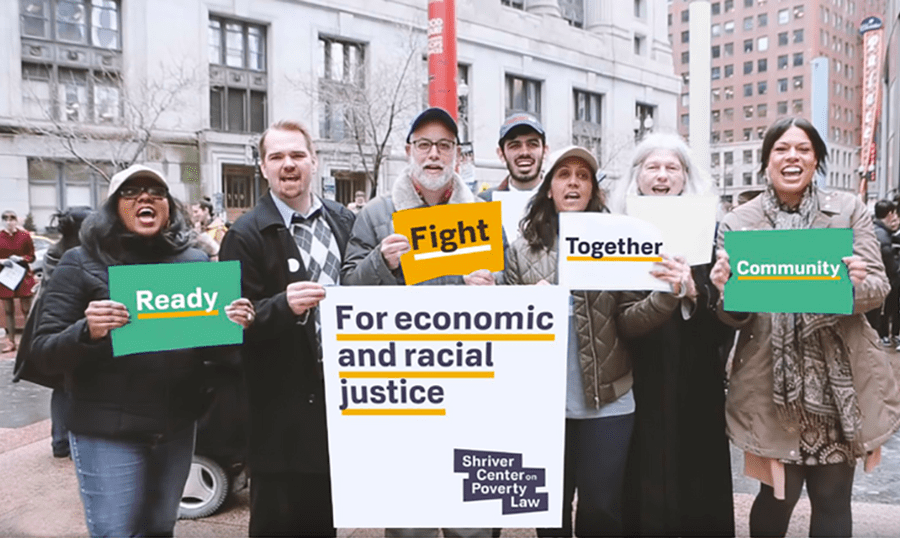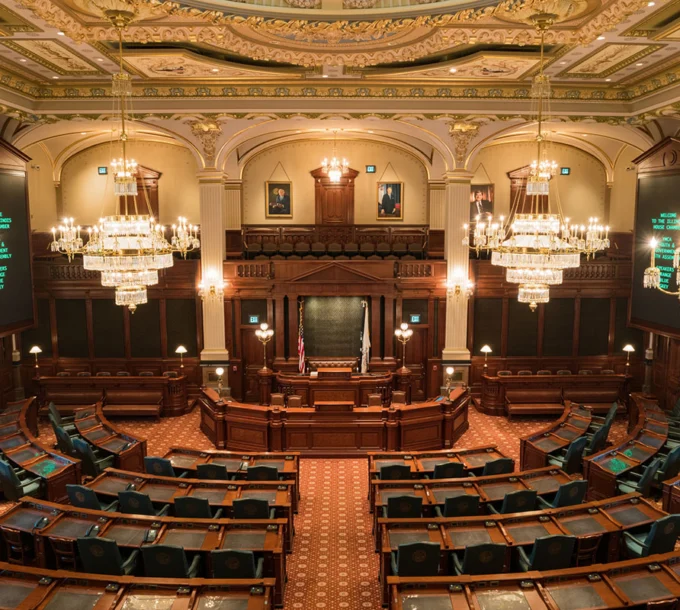
Over our 50-year history, the Shriver Center has secured hundreds of law and policy victories with and for people living in poverty in Illinois. Building on these wins and our comprehensive view of poverty, we connect and train lawyers, community leaders, and activists nationwide to advance opportunity — for all, not just some.

The federal budget reconciliation bill passed in the House today and is on its way to be signed by the president. It’s the worst attack on our nation’s social safety net since “welfare reform,” the sweeping budget cuts and eligibility restrictions enacted in 1996.
For people returning home after incarceration, safe and stable housing isn’t just a basic need, it’s the foundation for rebuilding everything: work, family, community, and dignity. But in Illinois, housing remains one of the steepest and most unforgiving hurdles to reentry, and far too many face it alone.
Nearly 50 people gathered in Concord, New Hampshire for "Justice in Housing: New England," a unique opportunity to elevate a region that's often drowned out of the national discussion about housing.

Despite the challenging climate, our advocates are working tirelessly to win support for our legislative agenda for Illinois, which envisions a state where everyone can thrive. While it’s impossible to predict how the legislative and budget processes will play out, we’re ready to meet the moment.
The Shriver Center's Hana Urban spoke to Stephanie Altman, director of healthcare justice and senior director of policy, to discuss what cuts to Medicaid could mean for Illinois and lessons from the first Trump administration.
Proposed budget cuts threaten fair housing enforcement, putting millions at risk of discrimination and instability. By slashing funding for frontline organizations and gutting HUD’s enforcement capacity, these changes would make it nearly impossible to hold bad actors accountable. At the Shriver Center, we’re fighting back — through legal advocacy, state-level solutions, and coalition efforts to protect people’s rights to safe, stable housing.
Despite threats at the federal level to cut essential anti-poverty programs, our mission to advance economic and racial justice remains steadfast. In our 2025 legislative plan for Illinois, we continue to build on decades of success in Springfield. Read our full list of proposed bills that help create a state where everyone can thrive.
The Shriver Center on Poverty Law is taking action in the face of unprecedented threats to democracy and the social safety net. Our 2025 legislative agenda bolsters the anti-poverty programs and benefits residents rely on. From providing cash assistance to struggling families and increasing worker protections, to removing barriers to housing; our proposed legislation creates a fairer state where everyone can thrive.